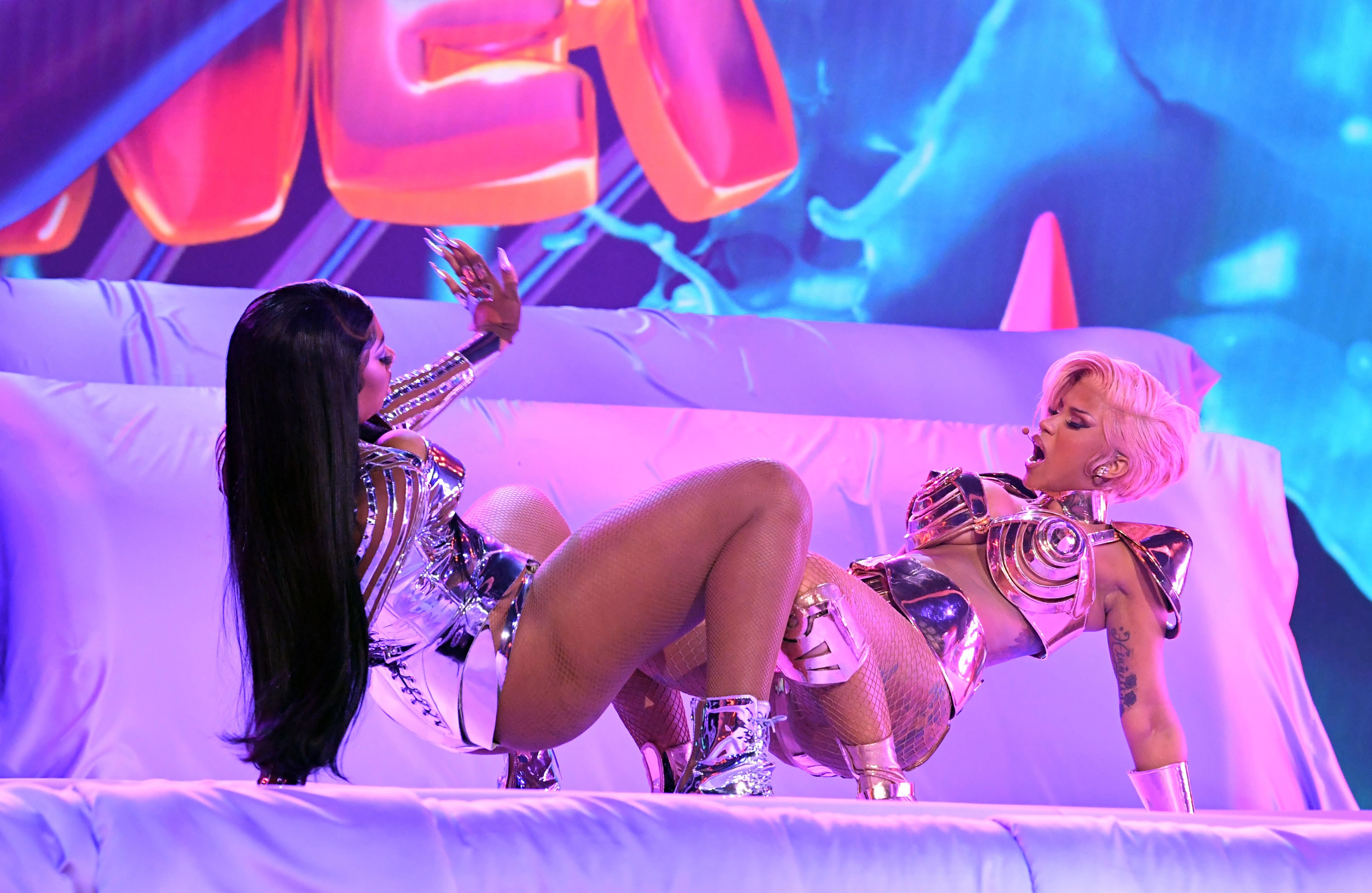Megan Thee Stallion and Cardi B's Grammys performance wasn't trashy. It was an empowering ode to female sexuality
There has been a lot of buzz surrounding the 63rd Annual Grammys, which aired Sunday on CBS. While most of the conversation is positive, some is downright negative. For example, the criticism surrounding Megan Thee Stallion and Cardi B's performance of their sexually liberating song, "WAP."
Coming fresh off her win for best new artist, Megan took the stage first to perform her hit songs, "Savage" and "Body," and was later joined by Cardi, who performed her latest song, "Up." Both their performances were equally sexy, but both artists decided to push the envelope further, by performing their hit song on a giant, purple bed. Donning Barbarella-like outfits (a nod to Jane Fonda's 1968 film), Megan and Cardi B owned the stage with confidence, which in my opinion, was the best Grammy performances of all time.
Of course, not everyone shared my sentiment.
Shortly after their performance, social media lit up with criticism surrounding Megan and Cardi's performance, referring to it as "trashy" and "inappropriate."
"Watching the #GRAMMYs with my daughters was a lesson in how NOT to behave. Wtf @iamcardib and Megan Thee?" one user tweeted.
This is nothing new. It seems whenever a female expresses her sexuality openly and confidently, she's received with immense scrutiny. Male artists, on the other hand, can be as sexy as they choose, and not receive an ounce of backlash. Remember Miley Cyrus' 2013 MTV VMAs performance?
Miley was picked apart for twerking with Robin Thicke during their "Blurred Lines" performance. Miley's reputation wasn't completely tarnished, but she did suffer immense backlash. Meanwhile, Thicke remained the victim, expressing he was blindsided by Miley on stage.
This is the narrative society has created for women. It's as if the universe malfunctions each time a woman openly expresses sexual pride. God forbid a female artist gyrates on stage, or praises her vagina in a song. No, we're taught to be demure and poised. Blatantly expressing our desires is too dangerous.
But I'm going to let you in on a little secret, women can be whomever they choose to be. We're multifaceted creatures, with a spectrum of emotions and beliefs, and there's absolutely nothing wrong with that. Megan and Cardi's performance was an ode female empowerment and sexual liberation, and should be perceived as such.
If it doesn't, perhaps you need to ask yourself why their performance bothers you so much.
Have you got something to say? Want to share your experiences with the world? Submit a post to Conversations for the chance to see your writing here.
- Taylor Swift and Harry Styles teach us the art in exes remaining friendly after a breakup - Indy100 Conversations ›
- Kodak Black claiming Megan Thee Stallion stole his catchphrase is disrespectful - Indy100 Conversations ›
- Megan Thee Stallion and Cardi B's reaction to woman crying over “WAP” ›
- Selena Gomez and Taylor Swift are giving me BFF goals in these rare Instagram selfies - Indy100 Conversations ›
- Did Eminem refuse a feature on Cardi B’s next album? - Indy100 Conversations ›
- Doja Cat, Cynthia Erivo led the fashion march at the Grammys ›
- 2021 GRAMMYs Awards Show: Complete Winners List | GRAMMY ... ›
- Taylor Swift Wins Album Of The Year | 2021 GRAMMY Awards Show ... ›
- Opinion | Megan Thee Stallion: Why I Speak Up for Black Women ... ›
- Megan Thee Stallion and Beyoncé make rap history at the Grammys ... ›
